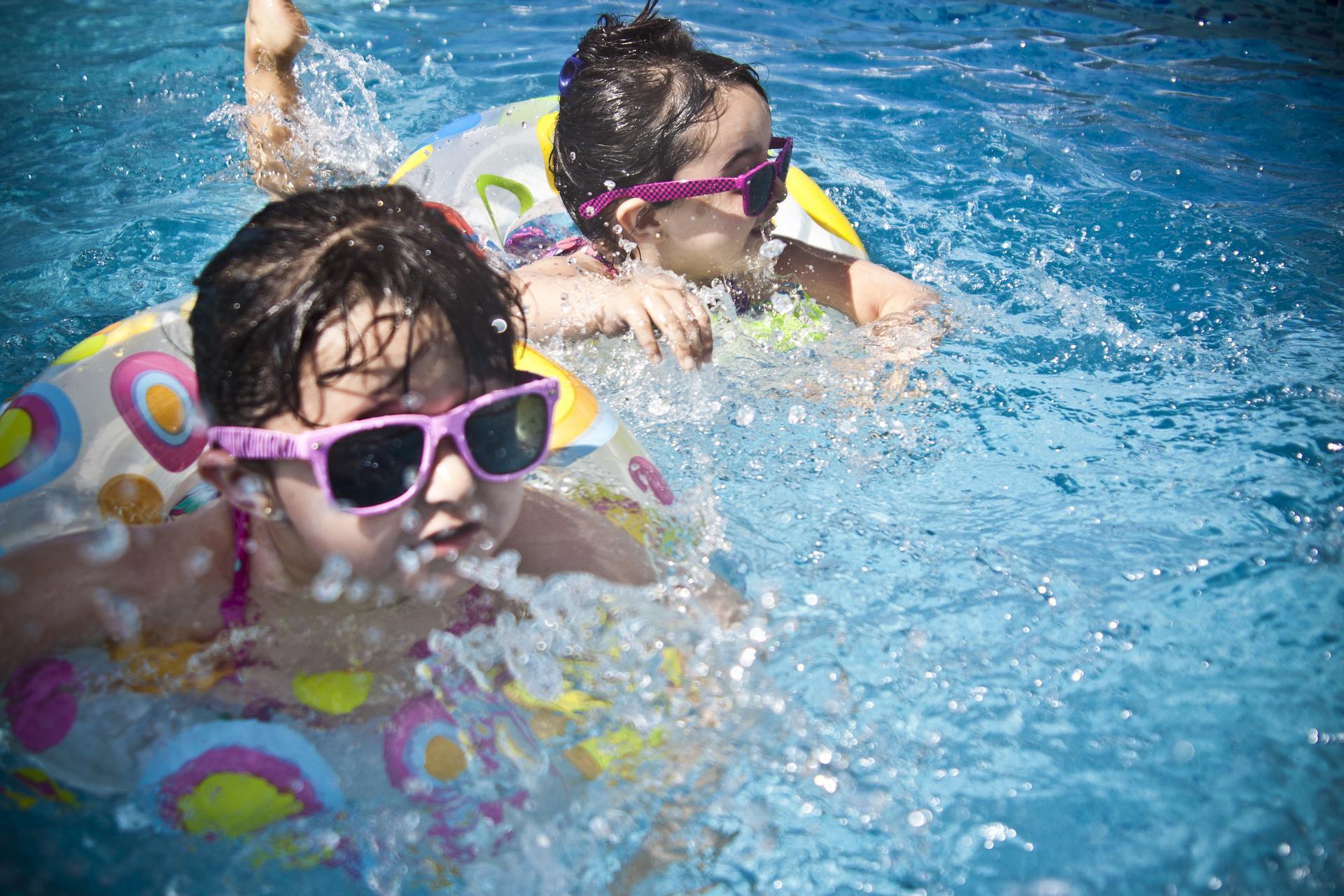Summer Safety Tips for August

Well, it looks like we didn’t all blow ourselves up or burn the house down over the Fourth of July, but summer still holds other perils. Nothing is more pleasant than sharing outdoor fun with friends and family — whether it’s swimming, boating or other water sports, hitting the beach, picnicking, or camping. But all these activities, of course, have their risks.
Here are a few safety tips to keep you and yours from harm while you all enjoy the rest of the summer:
Water & Pool Safety
To beat the heat in the hottest months, we all love water activities. But there are serious risks. In one recent year, drowning caused over 3700 deaths and the risk was greater the younger the child. So take precautions —
- Learn to swim if you don’t know how.
- Enrolling children ages 1-4 in swimming lessons greatly reduces their risk.
- Always watch kids closely when they’re in or near water. Never leave them alone or unattended; always have a responsible and sober adult as the designated “water watcher”.
- Best to only swim in designated areas with a lifeguard on duty.
- If you own a pool or spa, make sure it is adequately fenced.
- Protect your neck — never dive headfirst where the depth’s unknown or there may be submerged objects.
- Swimming in a river or the ocean is especially risky — be sure you have the skills for these settings.
- Swimming alone is particularly hazardous — always include a buddy.
Boating Safety
Boating can be great fun, but good times can quickly turn deadly if safety guidelines aren’t followed. In a recent year, US Coast Guard reported almost 4300 boating incidents that resulted in over 650 deaths, 2600 injuries, and about $46 million in property damage. Stay safe by being prepared:
- Be sure your boat and equipment are in good working order. Local US Coast Guard Auxiliary will provide free vessel safety checks.
- Be familiar with and follow all state boating laws.
- Have a checklist to ensure you have everything you need, including tools and a first aid kit.
- Life jackets are essential for everyone. Even good swimmers need them — when you fall off the boat you may become disoriented, injured, or even unconscious. Over 3/4 of boating deaths are due to drowning and almost 85% of these victims weren’t wearing a life jacket. Illinois explicitly requires US Coast Guard approved Personal Flotation Devices for boaters. Anyone under 13 must always wear a life jacket aboard any watercraft less than 26 feet in length while the boat is underway (unless below deck in an enclosed cabin or operating on private property). PFDs are required for persons of any age while operating a personal watercraft or jet ski.
- Once on the water, use common sense and good judgment. Know your limits and stay within them.
- Never drink and drive a boat.
- Check the weather before departing, and if the weather changes, play it safe and get off the water.
Picnic & Food Safety
Preparing and serving food in the summer heat requires a little extra care to avoid food poisoning. Enjoy the grub, but keep your loved ones safe:
- Follow FDA guidance and take steps to keep food at picnics and barbecues at the proper temperature to avoid foodborne illness.
- Putting it simply, keep cold foods cold and hot foods hot!
- Keep perishable foods out of the hot sun in a cooler with plenty of ice or frozen gel packs.
- Wash hands before food prep.
- Cover food to protect it from insects.
Sun & Bug Safety
Of course we all know about the short and long term risks of sunburn. Less appreciated is the danger of heat exhaustion and heat stroke. In 2019, almost 1,000 people died and over 2,000 were injured in the US from excessive heat exposure. We also all appreciate how mosquitoes regularly take a bite out of summer fun. Less well known is the growing risk in the US of mosquito borne illness caused by viruses such as Zika and West Nile.
Some simple steps can greatly reduce the risks:
- Limit outdoor exposures during the hottest days.
- Wear loose, lightweight clothing and a hat.
- Drink lots of fluids, even if you don’t feel thirsty.
- Replace salts lost from sweating by drinking juices or sports drinks.
- Pace yourself with any heavy exertion.
- Wear sunscreen, as sunburn affects the body’s ability to cool itself.
- Dodge the skeeters by using an effective insect repellent as directed, and by wearing long-sleeved shirts and pants.
- Beware of leaving doors or windows propped open to invite them in.
- Avoid leaving standing water around the premises where they can breed.
- Because of the risk of a serious birth defect, pregnant women should be especially careful about traveling to areas with Zika. The CDC has a website for up-to-date information here at the CDC Zika webpage.
Have a safe summer and have fun with your family and friends!



